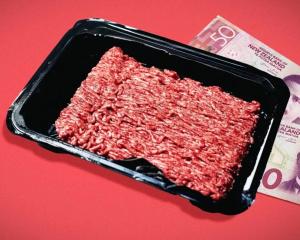
Compass Agribusiness professionals Hayden Craw and Jackie Jones have been speaking about how sheep and beef farmers could mitigate the risk of interest rate hikes and the effects of inflationary input costs.
They spoke on the hot topic at Northern Southland Vets Centre events in Riversdale and Mossburn last month and the Beef + Lamb workshop Feeling the Financial Squeeze in Waikouaiti last night.
Mr Craw said on-farm inflation and interest rate hikes have had "massive lifts" in the past 18 months.
About 80% of loans at agribanks in New Zealand were on a floating rate.
Many farmers had been surprised by the constant interest rate increases.
"They are getting these wee hikes all the time and it is essentially death by a thousand paper cuts — it just keeps coming at them."
At the same time, commodity prices were falling.
He urged farmers to focus on "controlling the controllables" and avoid getting distracted by the uncontrollables.
Miss Jones said farmers should focus on controllables, such as their productive performance, rather than uncontrollables, such as the schedule price at their meat works.
Mr Craw said to navigate the down cycle, farmers needed to understand their business and balance sheet, how robust it was, how much money they needed and at what times, key risks and extrapolate it over multiple years.
"We all know farming is cyclical and the down cycles tend to be shorter lived than the up cycles over time, thankfully."
Miss Jones said both of them had years of experience working in the rural banking sector.
At the start of the presentation, farmers were asked for a show of hands of who had experienced a similar situation before.
If farmers were experiencing a downturn for the first time and could talk to someone who had been through it before, it could help them create a long-term vision to get through.
Farmers experiencing a downturn for the first time and taking a short-term view were at risk of being derailed by a speed bump.
Part of navigating a downturn and waiting for commodity prices and costs to normalise was to create a budget to use as a blueprint for forecasting income for future years, such as hitting target weight for lambs when sent away at weaning.
Farmers showing they were controlling their productive output was important for bank managers, even if a farm business was losing money, Mr Craw said.
Regular communication with you bank manager was key.
"If you set a plan and monitor performance and communicate how you’re tracking and letting them know how you’re dealing with a risky period, that goes a long way."
A budget showed a bank manager how the business would be financed for the year.
"It is also about making sure you don’t have an overdraft driving your decisions on when to sell stock — as soon as you do that, there’s an opportunity cost."
Most sheep and beef farmers ran low-cost systems but costs were controllable.
Farmers should question what costs they could possibly reduce to run a lean system, such as reducing the amount of fertiliser purchased or delaying the installation of a fence.
Farmers were loyal to service providers in the rural sector but in the current economic environment they needed to look after themselves rather than what a salesperson told them they needed.
Compass Agribusiness was launched in Arrowtown in 2009 and has branches in Dunedin, Frankton and Gore.














